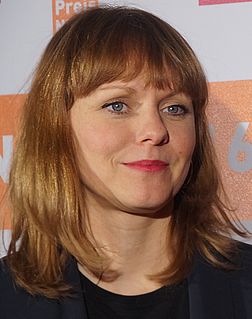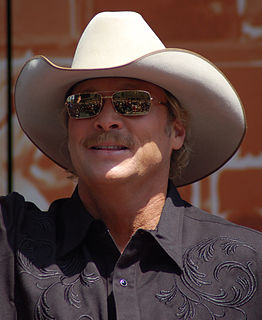A Quote by Nicolas Roeg
'Eureka' was very bad timing. The early 1980s: Reagan and Thatcher were in, greed was good, and here was a film about the richest man in the world who still couldn't be happy. Politically and sociologically, it was out of step.
Related Quotes
Liberals in the US don't have great passions about Margaret Thatcher. Conservatives do. For all the worship that Ronald Reagan elicits in conservative circles in the US, I would venture that Thatcher did far more to reshape British society than Reagan did here. When I moved to Britain, the utilities were state-run. By the time I left, most of that was privatized. Thatcher had broken the miners' union, all but crushed the Labour Party, cut back the welfare state, even flirted with a poll tax. In the circles I ran in, Reagan was mocked as a childish dolt. Thatcher was despised.
The early 2000s for me were a very emotional time, politically. I'd been through Reagan and been through first Bush and Clinton, and it's not like I had an easy time through those years. But I just thought it was particularly rough. I have to say the World Trade Center attack was very weird for me. The events that followed were worse. It was a really long swath of time.
Mind you, I have had in my sojourn on earth as good a time of it as any man, so I can speak with some knowledge. A writer in the Manchester Guardian who is unknown to me lately described me as "the richest man in the world." That sounds a pretty big order, but when I come to think it out I believe he is not far wrong. A rich man is not necessarily a man with a whole pot of money but a man who is really happy. And I am that.
For me, it was always clear that Toni Erdmann is more a film about what globalization, capitalism, does with private relationships much more than making a "political" film. It's more interesting to raise questions, because I don't feel in a position to "make a statement" with the film. Toni Erdmann comes from a completely different generation then his daughter, it's the post-war generation, they were very politically engaged. They raised their children with a lot of human worldviews, sent them out in the world believing in a world without borders.
While Labour Party orators readily remember the 1980s for Conservative Prime Minister Margaret Thatcher's free-booting variety of entrepreneurial meritocracy, what gets forgotten is that Thatcher also gave the heave-ho to the old establishment's notion of merit - good breeding, a posh school, and so on.
If anything good came out of 9/11, to me, was that people were so cynical about the world - all you hear about on the news is all the bad stuff everyday, but what was refreshing to me was after that, you saw how many good people there are out there. For every one bad one, there's a thousand good ones.
When you start out as an actor, you read a script thinking of it at its best. But that's not usually the case in general, and usually what you have to do is you have to read a script and think of it at its worst. You read it going, "OK, how bad could this be?" first and foremost. You cannot make a good film out of a bad script. You can make a bad film out of a good script, but you can't make a good film out of a bad script.
When it comes to partisan politics, everyone is a hypocrite. And all they care about is whether it hurts or helps them ... Is it good or bad for the Democrats? Is it good or bad for the Republicans? Is it good or bad for Jews, or good or bad for blacks, or is it good or bad for women? Is it good or bad for men? Is it good or bad for gays? That's the way people think about issues today. There is very little discussion of enduring principles.






































